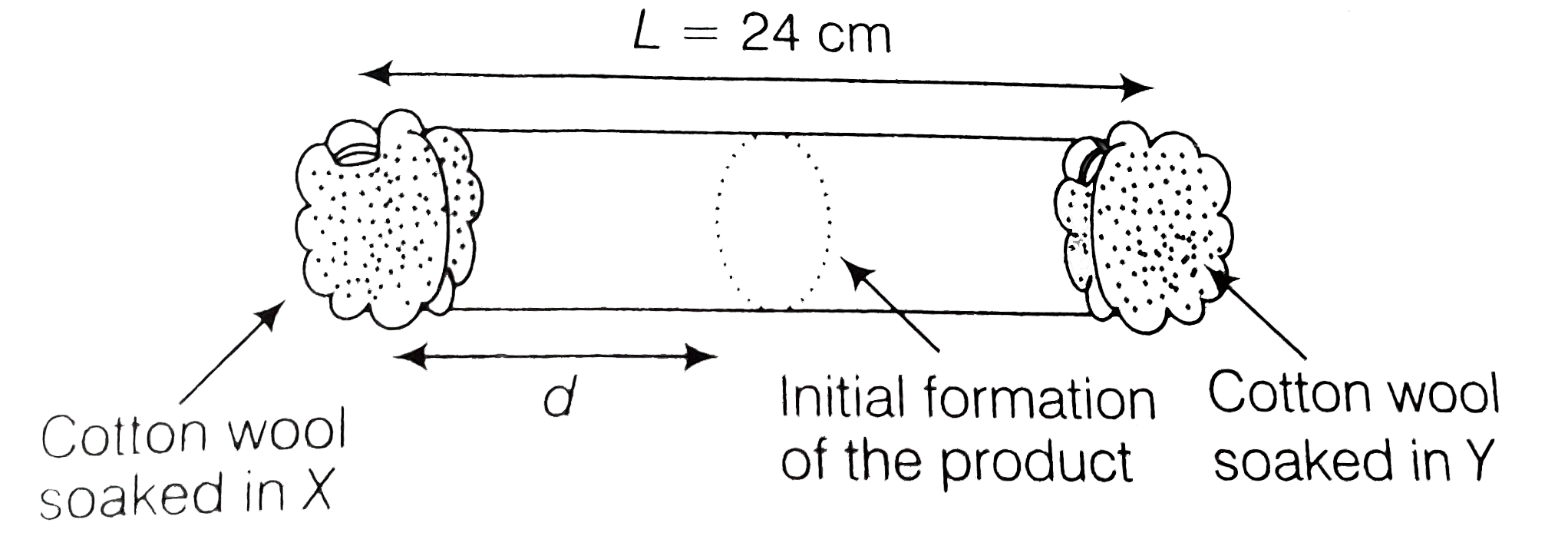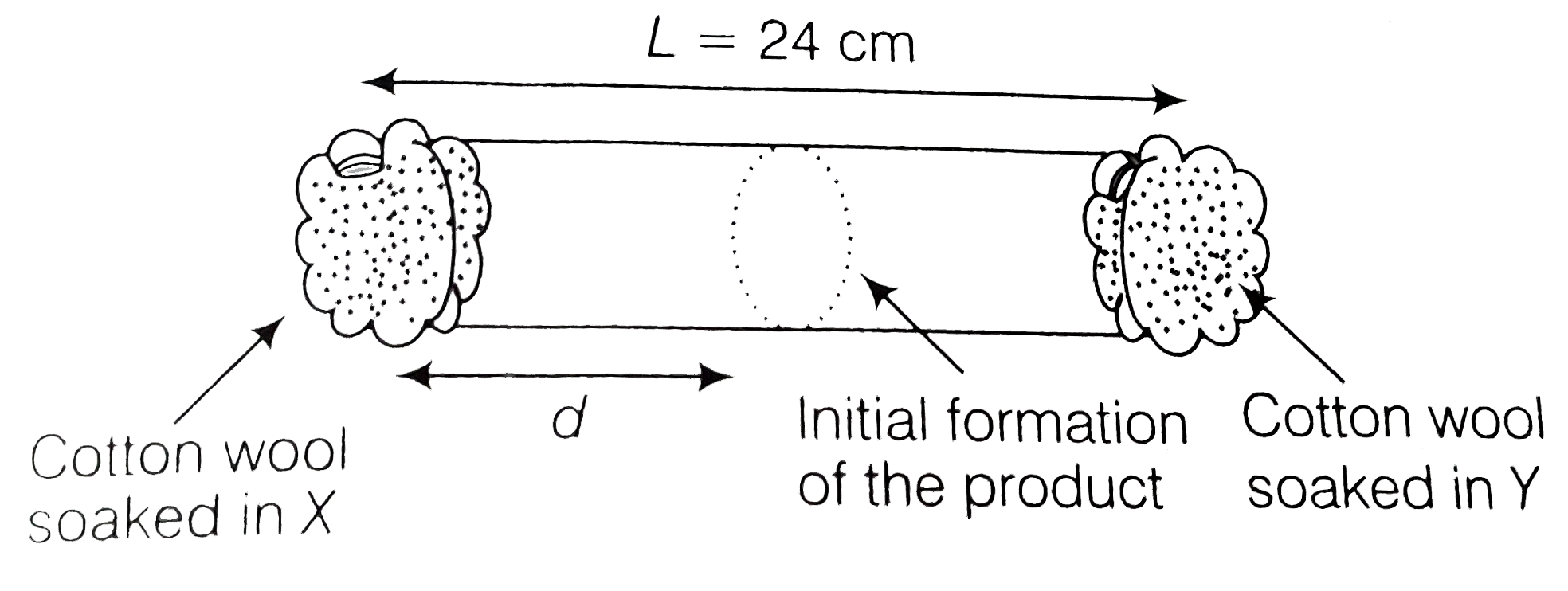Complete Solutions to p 6 of chapter STATES OF MATTER (GASES AND LIQUIDS) of Class 11 book with complete answers and questions
| Class 11 | CHEMISTRY |
| Chapter | STATES OF MATTER (GASES AND LIQUIDS) |
| OP TANDON | p 6 |
| Number Of Questions | 2 |
| Academic Year | 2023-24 |
`X` and `Y` are two volatile liquids with molar weights of `10gmol^(-1)` and `40gmol^(-1)` respectively. Two cotton plugs, one soaked in `X` and the other soaked in `Y`, are simultaneously placed at the ends of a tube of length `L=24` cm, as shown in the figure.
The tube is filled with an inert gas at 1 atm pressure and a temperature of `300K`. Vapours of `X` and `Y` react to form a product whichh is first observed at a distance `d`cm from the plug soaked in `X`.
Take `X` and `Y` to have equal molecular diameters and assume ideal behaviour for the inert gas and two vapours.

The value of `d` in cm (shown in figure), as estimated from Graham's law, is
View Solution`X` and `Y` are two volatile liquids with molar weights of `10gmol^(-1)` and `40gmol^(-1)` respectively. Two cotton plugs, one soaked in `X` and the other soaked in `Y`, are simultaneously placed at the ends of a tube of length `L=24` cm, as shown in the figure.
The tube is filled with an inert gas at 1 atm pressure and a temperature of `300K`. Vapours of `X` and `Y` react to form a product whichh is first observed at a distance `d`cm from the plug soaked in `X`.
Take `X` and `Y` to have equal molecular diameters and assume ideal behaviour for the inert gas and two vapours.

The experimental value of `d` is found to be smaller than the estimate obtained using Graham's law. This is due to
View Solution
p 6 questions and complete solutions for chapter STATES OF MATTER (GASES AND LIQUIDS) of G.R. BATHLA & SONS CHEMISTRY (HINGLISH) of Class 11